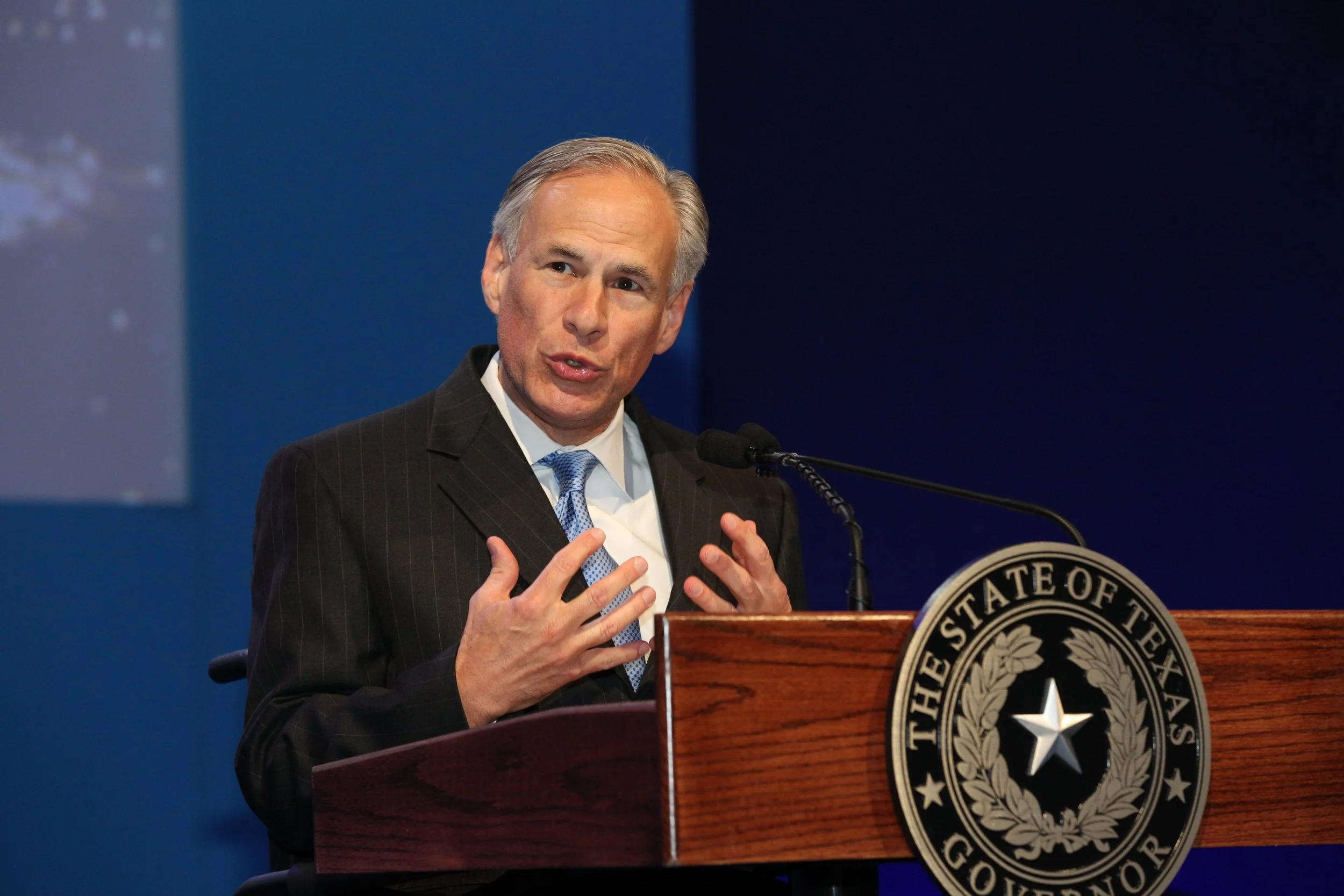Nearly 500 migrants have been bused to Los Angeles by Texas Gov. Greg Abbott
The Texas governor started sending migrants to Los Angeles via bus in June, and the Biden-Harris administration plans to use GPS monitoring devices to monitor migrant families. Photo courtesy of WikiCommons
Just a few months after Texas Gov. Greg Abbott sent the first group of migrants to Los Angeles from Texas, nearly 500 migrants have arrived in the city. The Los Angeles City Council declared Los Angeles as a sanctuary city June 9, allowing undocumented immigrants to interact with the local government without the potential concern for deportation.
“Los Angeles is not a city motivated by hate or fear, and we absolutely will not be swayed or moved by petty politicians playing with human lives,” Mayor Karen Bass said in a June 14 statement.
Abbott sent the first group of 42 migrants to Los Angeles on June 14, with the majority of those on the bus being from South and Central America, as well as Haiti and Asia. In the months since the first bus, 12 other buses have come to Los Angeles carrying hundreds of more migrants.
In a press release released the same day, Abbott announced that small border towns in Texas “remain overwhelmed and overrun” due to migrants crossing into the Texas border illegally.
Nonprofit organizations in Los Angeles, such as the Interfaith Refugee and Immigration Service, a nonsectarian organization, have been offering assistance and legal aid for refugees and immigrants to settle into the United States.
John Compton, a political science professor at Chapman University who also serves as a chair for the department, explained what Abbott may be trying to achieve by sending migrants to destinations like Los Angeles and other politically blue states and cities.
“Abbott’s argument seems to be that Democratic politicians won’t take the problem seriously so long as states like Texas are bearing the brunt of the influx,” Compton told The Panther. “I’m not sure this is really true. The Biden administration has been very aware of this issue and working on it for a long time. However, it does seem that Abbott and others have achieved their goal of focusing more media attention on the issue.”
“Abbott’s argument seems to be that Democratic politicians won’t take the problem seriously so long as states like Texas are bearing the brunt of the influx. I’m not sure this is really true. The Biden administration has been very aware of this issue and working on it for a long time. However, it does seem that Abbott and others have achieved their goal of focusing more media attention on the issue.”
Rachael Bae, a sophomore English major, expressed her concerns regarding immigration in the U.S. and a call for necessary regulations to control the borders.
“I do have a lot of empathy for, you know, the immigrants who are coming here for a better life, but I do think that there needs to be some kind of regulation with this,” Bae said. “Because on one hand, I don’t think that completely closing the borders against all immigrants is a good idea because there are people who are coming from countries where they can’t live there anymore and be certain of their safety and prosperity.”
She continued: “And so, I don’t think that’s a good idea just because (of) the humanity of it all. But then, with completely open borders, we’re also freely allowing in potential criminals, like drug dealers and people who are using innocent people to get into this country, and we obviously don’t want that.”
The Biden-Harris administration plans to control the number of migrant families illegally crossing the borders by monitoring them at home via ankle bracelets with a potential deportation process. Although Biden’s asylum plan is still in the process of finalization, the plan would force certain migrant families to remain in Texas and other border states.
Biden’s plan has parallels to former President Ronald Reagan’s administration’s decision to force migrants to remain in Texas while awaiting asylum processing. Known as the Immigration Reform and Control Act of 1986, the act tightened border control for undocumented immigrants and individuals who were not legally authorized to work in the United States. It also made the process to qualify for a work application more extensive.
Mac Bunyanunda, a lecturer in political science at Chapman, commented that immigrant-related and immigrant advocacy nonprofit community organizations play an important role in providing assistance to migrants who are transported to Los Angeles. These organizations are not run by the government; rather, they work with the government.
“Part of this has to be done by private organizations because you have governments that are overwhelmed,” Bunyanunda said. “I don’t doubt that Texas is overwhelmed, and I think it has to be a public-private partnership to be truly effective because a lot of this is in the purview of the federal government… We can’t expect the government to do all of that given how fluid the situation is now. Maybe they can put something in place going forward, but I think a public-private partnership is probably more effective and more realistic.”
If you are interested in providing help to nonprofit and private organizations to help migrants, The International Institute of Los Angeles and U.S. Committee for Refugees and Immigrants are just a couple organizations aiming to do so.
“I don’t doubt that Texas is overwhelmed, and I think it has to be a public-private partnership to be truly effective because a lot of this is in the purview of the federal government… We can’t expect the government to do all of that given how fluid the situation is now. Maybe they can put something in place going forward, but I think a public-private partnership is probably more effective and more realistic.”

